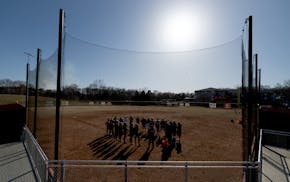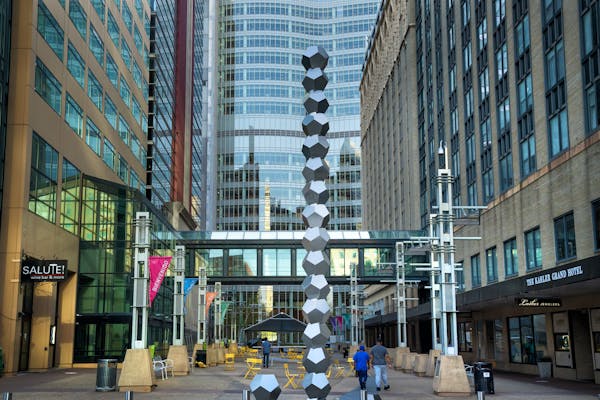ROCHESTER – For the first time, Destination Medical Center's (DMC) board rejected a housing funding request Thursday after the development's staff and a private developer reached a stalemate over a proposed 94-unit downtown apartment complex.
R&R Properties of Mankato applied in July for $8.4 million in DMC funding for the complex, on land along Discovery Walk in the 500 block of 2nd Avenue SW. The developer bought the site in 2014, and boarded up three houses on the property.
Brenda Quaye of R&R Properties said after the board meeting Thursday that she expects to work with DMC staff on another application for funding.
R&R Properties hopes to secure DMC funding and tax breaks from the city of Rochester for the complex. The developer estimates the project would cost about $34 million to build over the next two years.
But DMC officials say the request is too large for that kind of development. DMC has never granted $8.4 million to a single housing complex, and the cost per unit is about six times greater than what DMC has granted on average to housing projects over the past decade.
"We don't think it's the best use of the DMC dollars at this time, given the many other priorities that are out there," DMC Executive Director Patrick Seeb said.
Seeb said the project, which would provide market-rate workforce housing for residents near the Mayo Clinic, doesn't align with DMC's goal to provide housing at lower costs to residents downtown.
The project also doesn't fit with DMC goals; DMC officials would have considered an affordable housing project with reduced rents, but the developer doesn't have experience that type of housing and the paperwork involved.
"We're a small developer, and our equity comes out of my pocket," Quaye said. "When we do something, we want to make sure we can be successful at it."
Affordable housing rents are based on an area's median household income, with lower rent caps for people making less than the median income. In Rochester, that's about $118,000 for a family of four. DMC officials are looking for rental units with caps for residents who make 50% to 80% of that amount, while Quaye and R&R Properties want to set rents slightly higher to cater to Mayo Clinic workers.
Quaye said she and her staff were frustrated by DMC's process. She pointed out that R&R Properties' funding request changed to $6 million in August after resizing a federal housing loan for the project and later offered to cap the rent of 18 units at 110% of the area median income.
The board unanimously rejected funding the project. It argued that the amount would take up too much of DMC's project budget when larger apartment projects had received less money.
"In this case ... I think it sets a precedent that could be very dangerous," DMC Board Member R.T. Rybak said. "I want to look at a far lower level of subsidy that would be sustainable for the many other housing projects we have to be part of."
But members also said it was important to work with the developer. The property along 2nd Avenue is "critical" to the Discovery Walk corridor as it takes shape over the next few years.
Rochester faces a growing housing crisis. A 2020 study found the city needed about 14,000 new housing units — a mix of multifamily, single-family, townhouses and condo developments — to keep up with the city's expected population increase. Demand will be compounded as Mayo Clinic's $5 billion downtown expansion gets underway over the next few years.
DMC officials say they are meeting estimates in adding housing units downtown, with more than 1,600 built over the past decade. Another 1,700 units are set to be built over the next few years, not counting R&R Properties's project.

Golden Valley highway crash leaves one man dead; suspect in custody
Semi kills 10 cows on southeastern Minnesota highway
In South Carolina, Walz says Democrats 'need to change the attitude'
Two injured in shooting outside University of Minnesota arena after high school graduation

